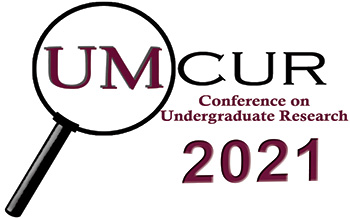Presentation Type
Presentation
Faculty Mentor’s Full Name
Peter Koehn
Faculty Mentor’s Department
Political Science
Abstract / Artist's Statement
One of the least developed countries, the Democratic Republic of the Congo (DRC) is also home to the world’s deadliest ongoing conflict. Violence perpetrated by over 100 armed groups has killed and displaced millions. Brutal methods of systematically decimating the local population, including rape warfare and other forms of sexualized violence, are often used to depopulate land, which allows militants to maintain and enforce their regional stronghold. In addition to these territorial and logistical motivations, the psychological, political, and cultural underpinnings of sexualized violence have perpetuated rape warfare in the DRC. Drawing on reports by Human Rights Watch and the United States Institute of Peace, this paper proposes a two-pronged approach to ending rape warfare for land depopulation that focuses on the root problem of sexualized violence instead of the sub-motivation of depopulating land. The first approach focuses on short-term problems, like the lack of medical and psychological assistance given to rape survivors, the increase of sexually transmitted diseases through rape, and the underreporting of militant rape. The second aspect tackles long-term contributors that require more complex and multifaceted solutions, including the psychological and cultural reasons behind rape warfare and the impunity that militant rapists currently benefit from. Ultimately, this paper encourages greater international cooperation to dismantle and condemn the systematic rape warfare and sexualized violence that currently inhibits millions of Congolese women and girls from living unfettered lives. Sources such as the Joint Initiative on Sexual Violence Against Women and Children in the DRC, the Multi-Country Demobilization and Reintegration Program, various UN resolutions (i.e., Security Council Resolution 1820), and peacekeeping missions (i.e., MONUC) provided valuable context and information for this proposal.
Category
Social Sciences
Ending Rape Warfare in the Democratic Republic of the Congo: Addressing Root Contributors
One of the least developed countries, the Democratic Republic of the Congo (DRC) is also home to the world’s deadliest ongoing conflict. Violence perpetrated by over 100 armed groups has killed and displaced millions. Brutal methods of systematically decimating the local population, including rape warfare and other forms of sexualized violence, are often used to depopulate land, which allows militants to maintain and enforce their regional stronghold. In addition to these territorial and logistical motivations, the psychological, political, and cultural underpinnings of sexualized violence have perpetuated rape warfare in the DRC. Drawing on reports by Human Rights Watch and the United States Institute of Peace, this paper proposes a two-pronged approach to ending rape warfare for land depopulation that focuses on the root problem of sexualized violence instead of the sub-motivation of depopulating land. The first approach focuses on short-term problems, like the lack of medical and psychological assistance given to rape survivors, the increase of sexually transmitted diseases through rape, and the underreporting of militant rape. The second aspect tackles long-term contributors that require more complex and multifaceted solutions, including the psychological and cultural reasons behind rape warfare and the impunity that militant rapists currently benefit from. Ultimately, this paper encourages greater international cooperation to dismantle and condemn the systematic rape warfare and sexualized violence that currently inhibits millions of Congolese women and girls from living unfettered lives. Sources such as the Joint Initiative on Sexual Violence Against Women and Children in the DRC, the Multi-Country Demobilization and Reintegration Program, various UN resolutions (i.e., Security Council Resolution 1820), and peacekeeping missions (i.e., MONUC) provided valuable context and information for this proposal.
